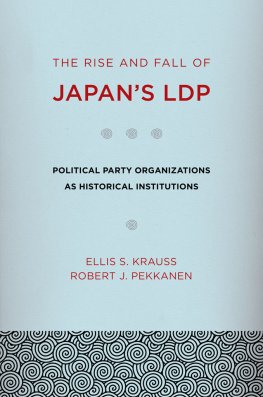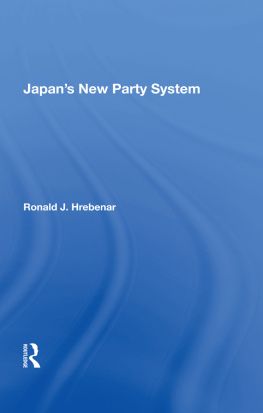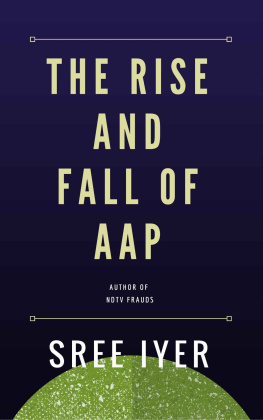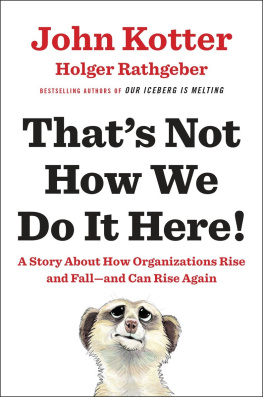Acknowledgments
We began the intellectual journey that resulted in this book with a simple sense of curiosity about what was happening at the intersection of theory and empirical reality in Japan. We owe a debt of gratitude to all of those who aided us along the way to our answers. Because it has been a long journey, with many twists and fascinating diversions along the way, we ask forgiveness for our overlooking anyone inadvertently omitted here.
This book, like many others, greatly benefited from the intellectual engagement of friends and colleagues. Kuniaki Nemoto was the best research assistant any scholar could ever hope for. He contributed to the manuscript in innumerable ways, always going well above and beyond the call of duty. Steve Reed and Yves Tiberghien also provided extensive and insightful comments on the entire manuscript, and Steve sent a number of valuable readings to the authors. Naoto Nonaka and Michio Muramatsu (a wonderful friend to and collaborator with Krauss for many years) organized a workshop at Gakushuin University to discuss an earlier draft of this book, and they and Sadafumi Kawato provided invaluable suggestions and comments. Ben Nyblade and Yves Tiberghien of the University of British Columbia organized a workshop in Vancouver where they and their graduate students, Go Murakami, Nick Fraser, and Konrad Kalicki, gave us very useful critiques and advice. The manuscript also benefited from a workshop at the Jackson School of the University of Washington organized by Scott Radnitz, at which he, Gadi Barzilai, Dan Chirot, Sabine Lang, Joel Migdal, and Saadia Pekkanen furnished important commentswith Barzilai, Lang, Radnitz, Migdal, and S. Pekkanen even writing up feedback memos to share with both authors. In spring 2007, first Krauss, then in spring 2009, Pekkanen gave presentations at Harvard University based on the ideas in this book sponsored by the Reischauer Institute and the U.S.-Japan Relations Program, and the comments and feedback there, especially from Ted Bestor, Susan Pharr (who in a sense started this all off for Robert years ago with his first class on Japanese politics), and Shin Fujihira, were very useful. Pekkanen gave a presentation at the University of Tsukuba and received valuable comments from Yutaka Tsujinaka (as always a good colleague and good friend), Shuichiro Ito, Hiroki Mori, Shinsuke Hamamoto, Jaeyoung Choe, and Takafumi Ohtomo.
In addition to these face-to-face meetings, we also benefited from interacting with friends, colleagues, and students. Erik Bleich read and provided written comments on the entire manuscript and, in particular, stimulated our thinking about qualitative methods. Daniel Markham Smith also provided us with excellent comments on each chapter, sharpening our logic with his incisive feedback. Martha Walsh did yeomans service with her excellent copyediting on the manuscript that we submitted to Cornell University Press. Peng-Er Lam, T. J. Pempel, Michael Strausz, and Bob Uriu sent us written comments that aided us considerably in framing our arguments. Ethan Scheiner and Steven Reed provided data we used (as acknowledged in the text), and we thank them and Masahiko Tatebayashi, who shared an early data set that grew to become our Japanese Legislative Organization database (J-LOD). The Jiji Press either provided or sold us the data on cabinet and LDP party support rates used in the chapters on party leadership. Students in Pekkanens SISEA 536 Political Parties in Japan and East Asia course at the University of Washington read and provided good feedback on an early version of the manuscript. We thank them all, especially Thomas Abrahamson, Chris Acheson, Garrett Bredell, Heewon Kang, Deirdre Martin, Alex Simmons, and Cassidy Werner.
We acknowledge the help of many students and research assistants, including Kuniaki Nemoto, Dan Smith, Hasegawa Tomoko, Imaoka Rieki, Kohmoto Aki, Saori Mitsuya, Yuriko Ohira, and Andre Toyama at the University of California at San Diego; also Brittain Barber, Garrett Bredell, Gregory Buehler, Rebekah Harmon, Deirdre Martin, Brian Mayer, and Hironori Sasada at the University of Washington. Itaru Yanagi of the University of Tsukuba provided stellar research assistance over two summers.
We also thank our many interview sources, although they must remain anonymous. Of course, we can name Katsuei Hirasawa and Yoshinori Ohno, and we thank them for allowing us to speak and travel with them on so many occasions, even during the frantic election campaigns. As scholars, we are extremely grateful for their overwhelming generosity in supporting our research. We also benefited from the kind introductions or advice about interviews from William T. Breer, Amy Catalinac, Yoso Furumoto, Ryozo Hayashi, the Keizai Koho Center staff, Yoji Kitamura, Kazutaka Maeda, Takakazu Matsuda, Naoyoshi Otani, Len Schoppa, Hideya Taida, Yutaka Tsujinaka, Tsuneo Watanabe, and, especially, Gerry Curtis.
Krauss thanks Gakushuin University and its Faculty of Law for providing the research funding that greatly aided him in the writing of this book, and especially Michio Muramatsu and Naoto Nonaka of that faculty. He also thanks the University of California Pacific Rim Program and the Japan Foundation for travel and maintenance support that allowed him to conduct interviews in Japan. Lisa Woinarski was of invaluable help in her efficient management of funding accounts and reimbursements. Pekkanen acknowledges the support of and thanks the Abe Fellowship of the Center for Global Partnership, the East Asia Center of the University of Washington, and the Japan Studies Program at the University of Washington. Mieko Kimura and the staff at Ninomiya House and Takezono House in Tsukuba provided excellent help to Pekkanen for periods of field work. Pekkanen also thanks the staff at the Jackson School of International Studies at the University of Washington. Annette Bernier (now in another job), Ellen Eskenazi, Lydia Gold (moved to the history department, sadly), Eva Greuhlich, Mark (cant write a book without a computer) Haslam, Emily Ngo, big cheese Dvorah Oppenheimer, Toni Read, Diane Scillo, Sandra Scott, Martha Walsh, and Beverly Winner-Coates helped him with many reimbursement requests and other support without which this research would simply not have been possible. Anyone who has ever worked at a university knows what he means.
This book would never have reached its publication fruition in whatever good shape it is in, without the help of several people. Lynne Bush expertly aided us with the figures. Karen M. Laun and Julie Nemer did a great job shepherding our original draft through copyediting. The inimitable Roger Haydon gave us excellent advice throughout for which we are grateful.
In addition, Pekkanen thanks his Japanese family (Hirokuni, Ikuko, Hirotaka, and Takahisa Tanaka; and Tomomi and Masaki Okazaki), and his American family, John, Lynn, Sarah, Benjamin, and daughter Sophia Pekkanen, once again. Finally, we give our gratitude and love to our spouses, Martha A. Leche and Saadia Pekkanen, who put up with us and provided us with support and encouragement during the process of researching and writing this book.









